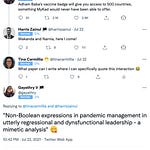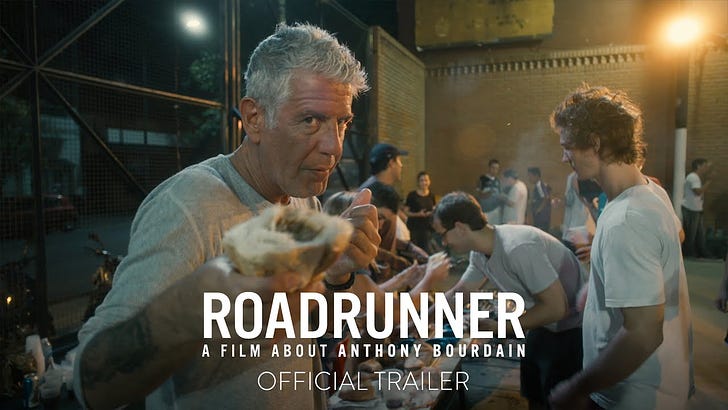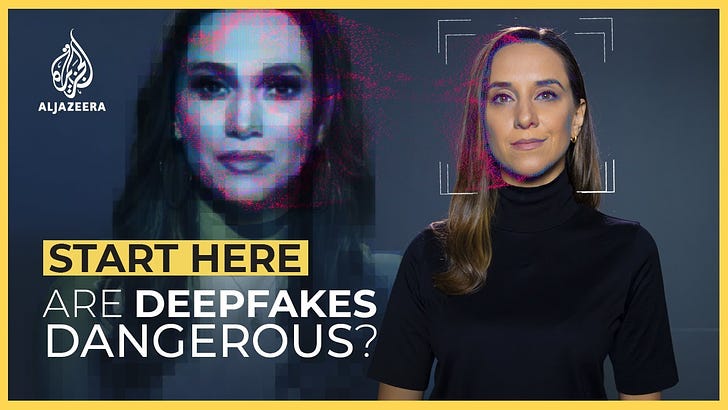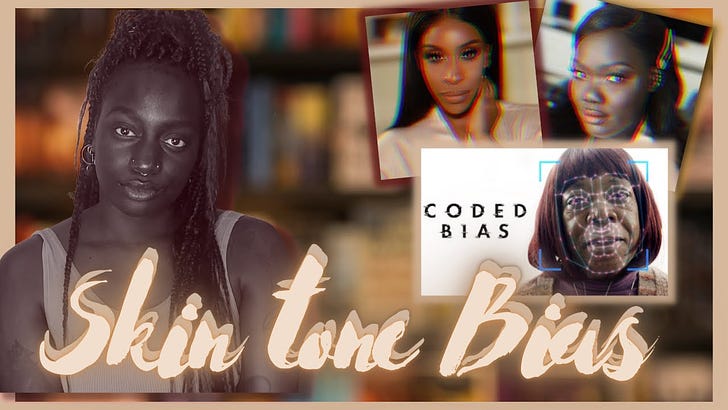This week…
The navigation on the main page of The Starting Block gets a minor facelift. All interview transcripts, which are filed under The Sidelines, can be found on the same page. Meanwhile, The Extra Mile will host the rare original long-forms that I occasionally have the time to write, including a new one, A Checklist for Fact-Checking, which expanded the original checklist published on The 25th Block with the inclusion of a step-by-step guide to skimming science papers.
And for our interview segment, I speak with filmmaker Ineza Roussille about documentary filmmaking—and how editing can be an ethical dilemma. You can find the full transcript at the link below. But first, a selection of top stories on my radar, a few personal recommendations, and the chart of the week.
Data isn’t oil, so what is it?
Matt Locke on How to Measure Ghost:
All these metaphors imagine public data as a huge, passive, untapped resources - lakes of stuff that only has value when it is extracted and processed. But this framing completely removes the individual agency that created the stuff in the first place. Oil is formed by millions of years of compression and chemical transformation of algae and tiny marine animals (sorry, not dinosaurs). Data is created in real time, as we click and swipe around the internet. The metaphor might work in an economic sense, but it fails to describe what data is as a material. It’s not oil, it’s people.
What Instagram really learned from hiding like counts
Nothing much. Casey Newton on Platformer:
After more than two years of testing, today Instagram announced what it found: removing likes doesn’t seem to meaningfully depressurize Instagram, for young people or anyone else, and so likes will remain publicly viewable by default. But all users will now get the ability to switch them off if they like, either for their whole feed or on a per-post basis.
What the ephemerality of the Web means for your hyperlinks
Always cite your source, goes the mantra. That includes online citation with hyperlinks. But linkrot (dead links) and content drift (valid page but not the intended one) can happen over the course of many, many years.
John Bowers, Clare Stanton and Jonathan Zittrain for CJR:
We examined hyperlinks in New York Times articles, starting with the launch of the Times website in 1996 up through mid-2019, developed on the basis of a data set provided to us by the Times. The substantial linkrot and content drift we found here reflect the inherent difficulties of long-term linking to pieces of a volatile Web. The Times in particular is a well-resourced standard-bearer for digital journalism, with a robust institutional archiving structure. Their interest in facing the challenge of linkrot indicates that it has yet to be understood or comprehensively addressed across the field.
What I read, watch and listen to…
I’m reading art philosopher Daisy Dixon’s essay on dealing with dangerous art.
I’m watching Welcome to Chechnya, a documentary by David France about the anti-LGBTQ persecution in the Russian republic. The documentary uses digital facial replacement technology to protect the identities of those affected. It is recommended by my guest this week.
I’m listening to Encore: Land of a Billion Faces, a podcast episode from In Machines We Trust about one of the most comprehensive databases of people’s faces in the world built by Clearview AI.
Chart of the week
The UK is unsure what ‘culture wars’ means and whether ‘woke’ is a compliment or insult, according to a study by King’s College London and Ipsos MORI. More than half never heard of the term microaggressions before:












